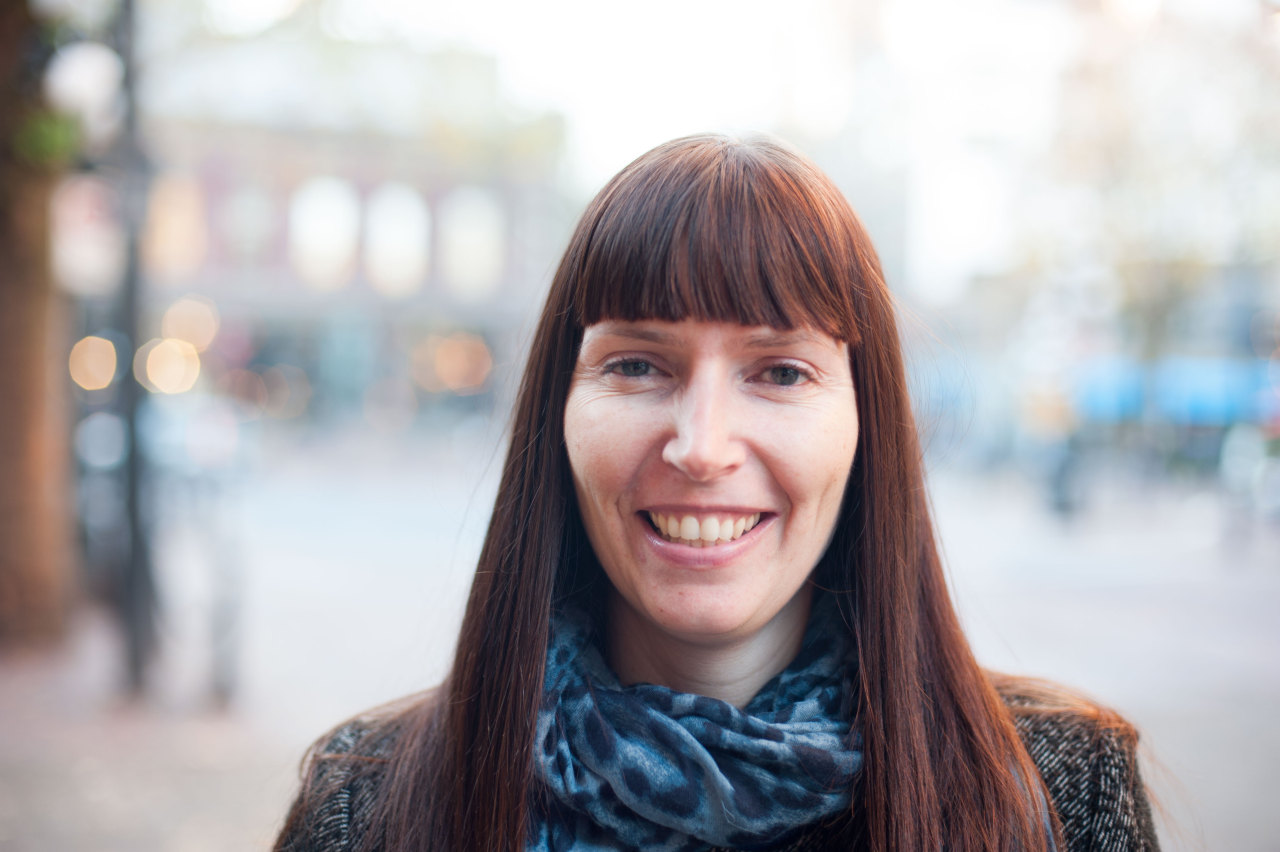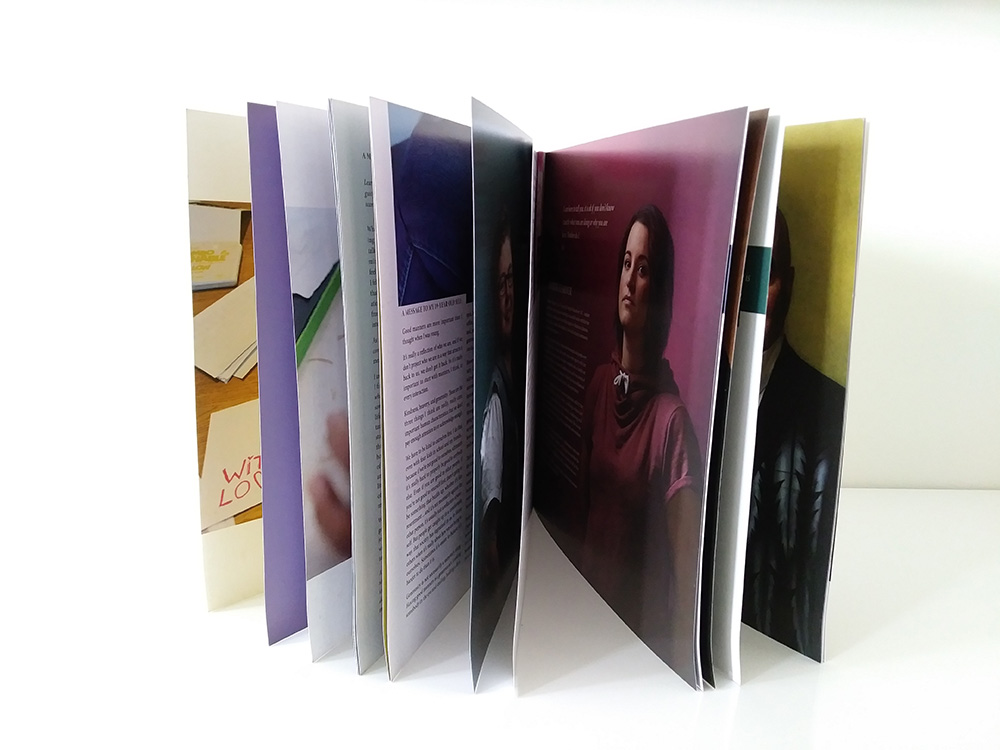Every year about 700 youth in British Columbia age out of the child welfare system when they turn 19.
Violet-Rose Pharoah was one of them once.
Now an adult, Pharoah is outreach co-ordinator for the Housing Matters Media Project, working in advocacy for youth in and from the child welfare system. She noticed there was a lot of attention on youth in care and in the process of leaving the system, but barely any mention of adults who left decades ago and the knowledge and perspective they gained since then.
Part of the reason for that silence, notes Pharoah, is stigma.
“Do you necessarily want to put yourself out there in a public way, saying ‘I’m a former youth in care,’ because there is typically an image of what that’s about,” she said. “Also it’s so personal: this is your story, this is your lived experience, and for some individuals, they haven’t always had the best experience when they’ve shared that.”
But Pharoah, along with Patti Fraser and Corin Browne, co-artistic directors of the Housing Matters Media Project, believed youth would benefit from hearing these stories and wanted to highlight the voices of adults who have been through the system and the transition, who could tell youth what they wished they had known at 19 years old.

The result is We Are Everywhere, a coffee table book featuring interviews with 10 adults from care living in the Vancouver region created with support from the Vancouver Foundation, Fostering Change and Arts in Action Society. About 800 youth in or leaving care will receive copies of We Are Everywhere during BC Child and Youth in Care Week from June 3 to 9, and another 700 copies will be gifted to people in the community. It’s not currently available to the public.
Housing Matters Media is reaching out to get 800 handwritten letters of advice and support to include in each book given to a youth. The Tyee spoke to Pharoah about the book project and how people can get involved. The interview has been lightly edited for clarity.
The Tyee: What is We Are Everywhere about?
Violet-Rose Pharoah: We Are Everywhere is a community-engaged book, and it came from the work of Patti and Corin from Housing Matters Media. For the last few years they’ve done a couple of projects with the youth-in-care community: the 19th Birthday Party, youth aging out of care sharing their experience of what that was like; and Portraits of Connection, a series of videos of former youth in care sharing about people, places or experiences that supported them in their journey to adulthood.
And through that work they realized that one of the voices that was missing was from people who had aged out and moved on with their life. That voice wasn’t really being heard. So this book features 10 Vancouver adults who were formerly in care.
What does it mean to be community engaged?
We actually had the participants come together on a couple of occasions. That was a huge aspect of this work based on what we heard. We may be connected while we’re in the system, but once all that support is cut off, it’s not very often that that continues on. One of the things that they really enjoyed was the opportunity to come together as individuals with lived experience, but not have that be the focus. They came together and created some art, we enjoyed a meal together.
I was so grateful for Patti and Corin. They both have been in community-engaged arts work for over 20 years. So the central focus of their work is ensuring that people have the opportunity to share their stories, but in doing that, that it’s done in a safe way and a way that their voice is heard, that it’s created by them and is actually them saying what they’re wanting to say.
You say there’s a stigma to being a former kid in care: was dispelling that stigma part of the desire to make this book?
It’s a missing voice that I think we need to challenge. Because my big thing is we want better outcomes for youth in care, but if you’re wanting those then you actually need to show them what that looks like, and who better to show them that than individuals who have actually done that themselves.
Who are some of the people in the book?
We had Patrick, who is an architect — he’s pursued education and that was something he was really passionate about. We had several individuals who were actually involved in advocacy work, so that was a really pivotal message, as well, for those youth who are wanting to eventually go on and do that work.
We had another individual, Amber, who didn’t age out. She wasn’t really sure she belonged in the book because of that. But we had that conversation about that’s the thing about being in care: there’s so many different experiences of it, and why are we only wanting to focus on certain aspects of it? You still have had that experience, and some of the wisdom that you’ve learned from that is something valuable to a youth who might potentially pick up that book.
Is this book just for youth in and leaving care?
We have 1,500 copies that are being printed and we are gifting 800 of them to youth in care. The other 700 we’re actually going to be gifting to community members, and some of the reason behind that is we know there’s a lot of allies, but we also know that a lot of individuals in our society don’t realize that they’re being educated about this system through film, TV, media. So we wanted an opportunity to get into that little mix and provide them something that they might not otherwise have the opportunity to engage with.
Would you consider producing more copies if there was demand?
I think what will be interesting is to actually see how the community responds to this. Because we have no idea. We may give it to youth in care and they may be like, nah. Or we may give it to community members and they’ll be like, no. Or we may have the opposite, which we really do hope, and people have a desire to want to engage and share this book with others so that they can change a little bit of what they know and their perceptions, especially.
Talk about the letter writing campaign, 'From Me To You'.
Often in this work we’re approached by people who can’t be foster parents, they can’t be social workers, or they don’t know how to give back. We thought what a better way to bring that voice into the work than ask community members to write a handwritten letter. Reconnecting with yourself when you were that age and entering adulthood, faced with some challenges trying to figure out what your journey was going to be: what is that letter that you would have wanted to receive?
I have a thing for handwritten letters. As a former youth in care, I don’t have a lot of things from that time. But the few things that I do have, there are some letters in that mix and I’ve always held onto them because there is something special about that, just knowing that someone created that space and time to actually just sit down and connect with a pen and paper, and with their heart, to really pass that forward to someone else. And that’s what we’re hoping to do with these letters as well.
It’s a crazy ambitious goal. And I’ll be writing a lot myself. But our hope is that people can spread the word and spare five minutes to just write a letter, and we’ll make sure that it definitely gets included with the book to be given to a youth in care.
If people want to write a letter, how do they do that?
If they want to write a letter they can go to our site and the information is on there. There’s a mailing address and a little information about tips for writing the letter, and there is also contact information. ![]()
Read more: Rights + Justice, Housing
















Tyee Commenting Guidelines
Comments that violate guidelines risk being deleted, and violations may result in a temporary or permanent user ban. Maintain the spirit of good conversation to stay in the discussion.
*Please note The Tyee is not a forum for spreading misinformation about COVID-19, denying its existence or minimizing its risk to public health.
Do:
Do not: